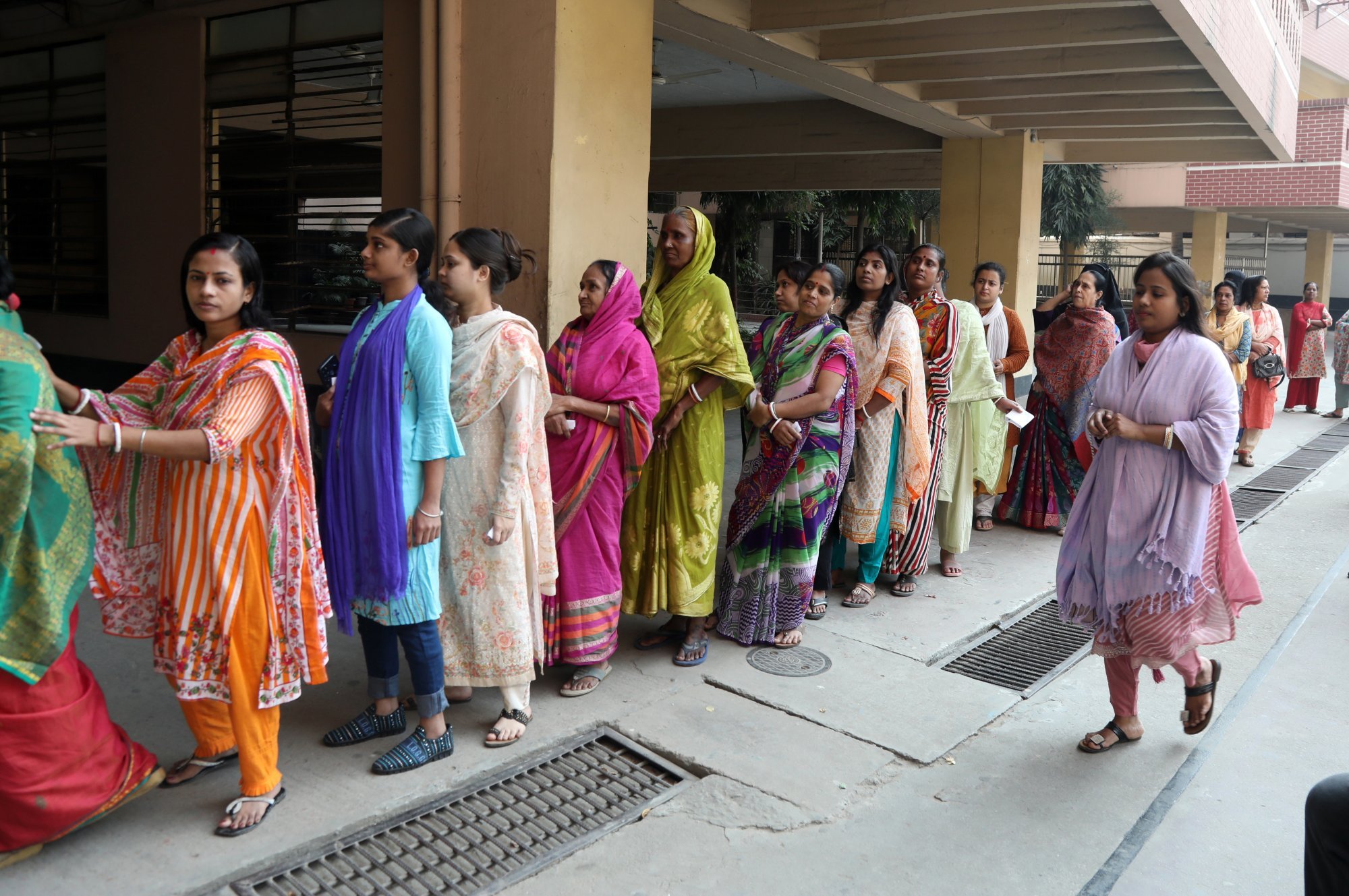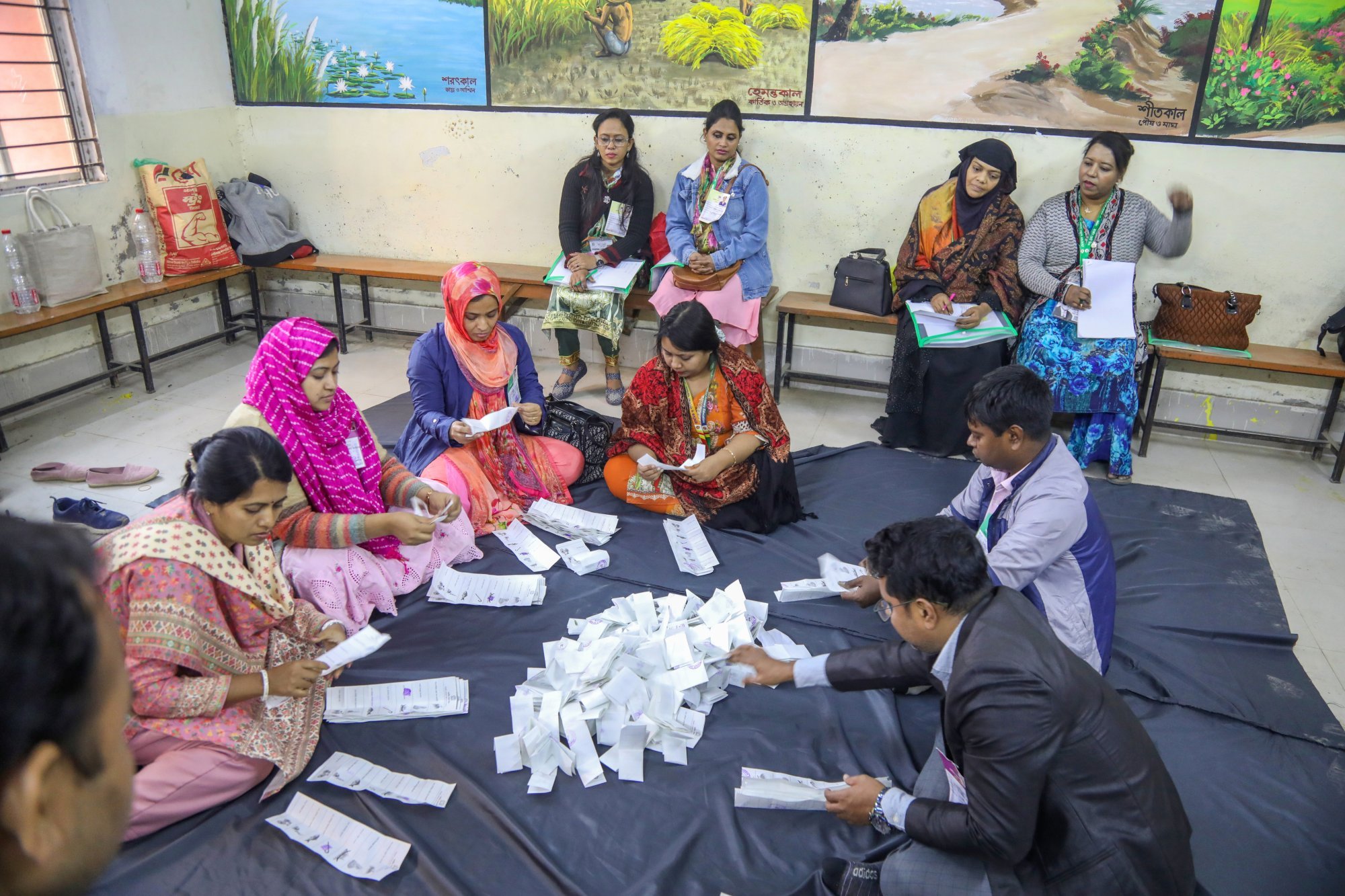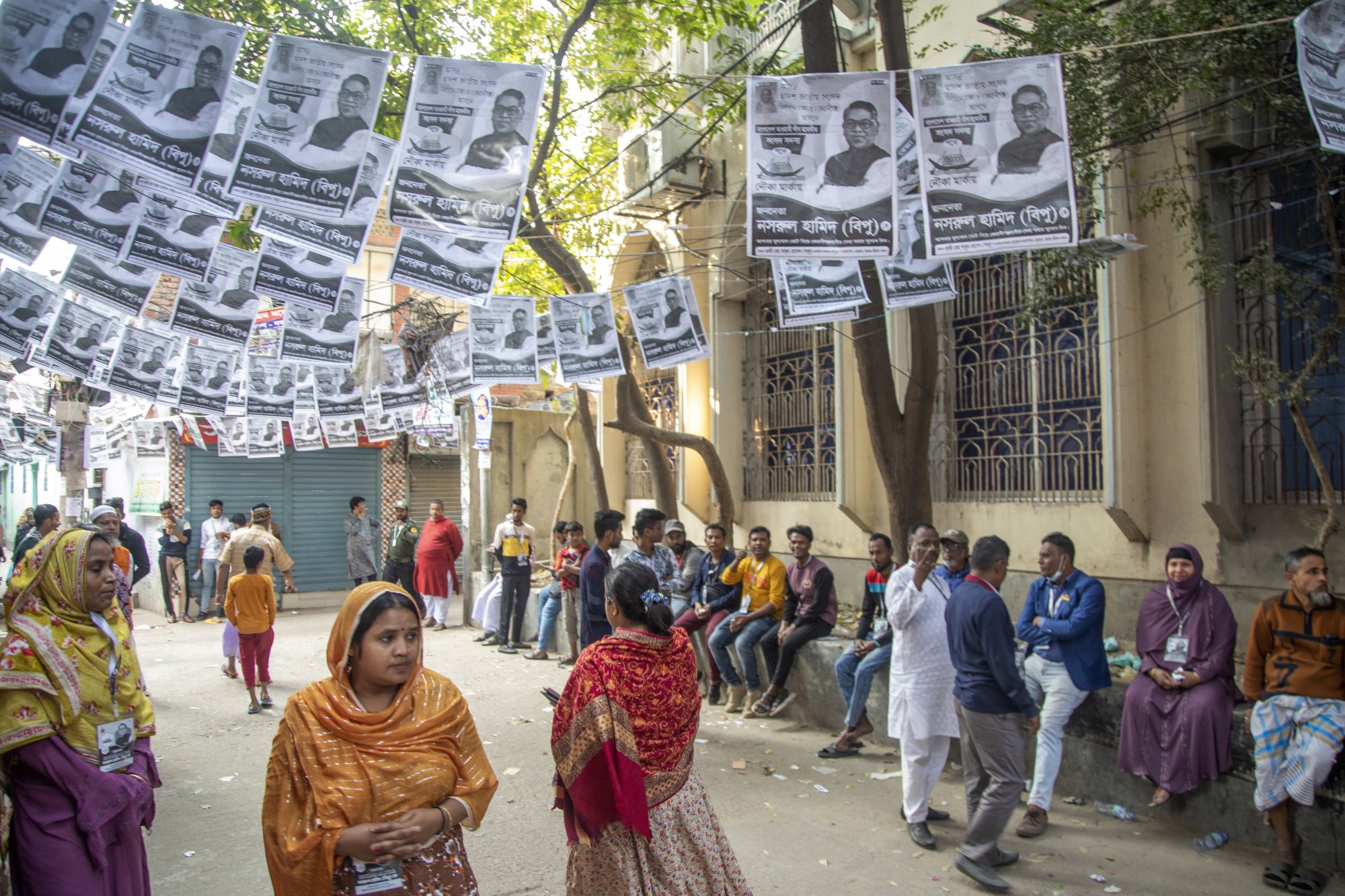This Week in Asia found that across Dhaka, enthusiasm was in short supply at polling stations on Sunday as ruling party loyalists wearing Awami League badges appeared to have been deployed to beef up the thin lines.
One middle-aged woman, who gave her name only as Begum from Mohammadpur’s slum community in the sprawling capital, said she had been paid 500 taka (US$4.50) and a “biryani meal” to stay outside a polling station for the entire day to help the optics of a busy election.
“Observing the dismal voter turnout in this farcical election, it’s evident that the people of this country have rejected the legitimacy of the current and the coming government,” BNP senior leader Nazrul Islam Khan told This Week In Asia. “This is a significant victory for the BNP’s non-violent movement to reinstate democracy in our nation.”
Sheikh Hasina wins fifth term in Bangladesh election without opposition
Sheikh Hasina wins fifth term in Bangladesh election without opposition
Dismay at Hasina’s political coronation for a fifth term was widespread, especially among younger, urban voters who face the sharp end of the shrinking room to speak freely.
“I don’t have any interest in participating in this farce. It’s just the newest drama from the Awami League’s playbook,” said Ibrahim Haq, a 33-year-old computer science engineer.
“It doesn’t have the true vibe of a national election,” added Sajib Uz Zaman.
The 26-year-old writer at a local magazine said recent years had been characterised by a collapse in freedom of speech and safety to dissent.
“I find myself constrained to share my thoughts and opinions only with a select few whom I trust deeply,” he said. “The reason for this caution is the looming risk of facing legal action or physical harm if I were to speak openly in public or on social media.”
Hasina on Monday dismissed criticism of the general election as “illegitimate” after her win.
“The election was free and fair,” she told reporters, insisting that “those who want to criticise can criticise”.

Trouble ahead?
The Awami League’s victory may be a relief to Bangladesh’s business clans as well as foreign investors seeking continuity in infrastructure, telecommunications, energy and textiles projects, experts said.
Over the last decade, Bangladesh received over US$2.6 billion in FDI from China, far surpassing Japan’s US$380 million, according to Bangladesh Bank data.
“If you’re India or China, you think that keeping the Awami League and Sheikh Hasina in power is going to ensure more stability for them,” said Pierre Prakash, director of Crisis Group’s Asia Program. “That’s the way they look at it. I think that discounts the potential for political turmoil.”
Hasina herself hinted at the troubles ahead, calling the BNP a “terrorist party” during a post-election press briefing at her government residence on Monday, a sign a crackdown, which has already seen its leaders arrested or chased into exile, may well be extended once the dust settles on the polls. “We showed our patience and we ensured people’s rights.”
“I am trying my best to ensure that democracy should continue in this country,” she told reporters.

But critics say Hasina’s unrelenting harassment of her rivals has chiselled away at Bangladesh’s democratic promise.
“In terms of having a healthy and vibrant democracy, this election looks a bit like the nail in the coffin to be honest,” Prakash said.
“You can see there is a trend … towards greater autocratic tendencies and less freedom of speech, less freedom of religion, [a] less democratic landscape … you could expect that there would be further clamping down on anything that’s considered to be dissenting from the government voice.”
Prakash raised the prospect of the BNP being “deregistered” as a political party after the election after Hasina said “the BNP has no right to do politics”.

In a sign of the febrile nature of Bangladesh’s politics, small violent incidents were recorded across the country on polling day, with police saying arsonists set fire to at least 10 vehicles and multiple structures, including some polling centres.
In the capital Dhaka, three people, including a child, were injured in a crude bomb explosion in front of a polling station in the Hazaribagh area on polling day. Prior to election day, Bangladesh police arrested seven members of the BNP, accusing them of orchestrating a pre-election arson attack on a packed commuter train, which resulted in four dead and left another eight injured on Friday night.
As Hasina consolidated her dominance over Bangladesh’s politics, more persecution of critical voices could be on the horizon, warned Meenakshi Ganguly, deputy Asia director of Human Rights Watch.
“This is the third consecutive election where Bangladeshis have been denied the chance to choose their leaders. Instead, many fear a further crackdown on any criticism of the government,” she said.

